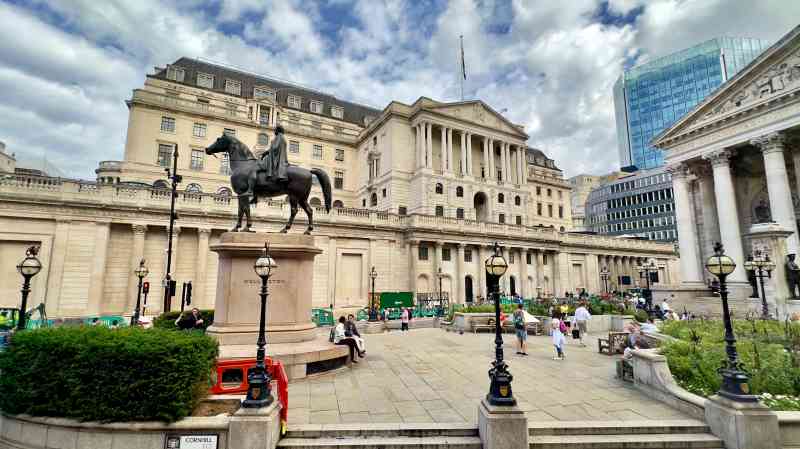The public has a positive perception of the Bank of England for the first time in more than two years, thanks to a steady fall in inflation and the prospect of lower interest rates.
According to a survey of 2,200 adults carried out by Ipsos for the Bank, a positive net 4 per cent of people said last month that they were satisfied with the central bank’s interest rate decisions.
This was up from a net reading of -4 per cent in May and is the first time the survey has shown that a majority of people are happy with the Bank’s performance since February 2022.
Improved confidence in the Bank reflects the sustained reduction in inflation over the past two years, falling from a peak of 11.1 per cent in October 2022 to 2.2 per cent in July 2024. Interest rates have fallen for the first time since March 2020 to 5 per cent from 5.25 per cent, boosting the public’s perception of the monetary authority.
Survey respondents said in August that they expected inflation over the next 12 months to be 2.7 per cent, down from 2.8 per cent. They forecast that in five years’ time inflation would rise to 3.2 per cent, up from an expectation of 3.1 per cent in May.
The slight reduction in near-term inflation expectations comes as the Bank’s monetary policy committee, its nine-strong ratesetting panel, is tipped to leave interest rates on hold next Thursday.
“We expect the Bank of England to keep bank rate on hold at 5 per cent,” Sanjay Raja, a senior economist at Deutsche Bank, said, “but, with price data painting a slightly more encouraging picture, we expect the MPC to signal a doveish hold, setting the stage for a second quarter-point rate cut in November.”
Analysts at Morgan Stanley agreed: “We see a six-to-three vote for rates on hold, but do see mild doveish tweaks to the messaging, hinting at November action as probable.”
ING, the Dutch bank, said: “With services inflation still elevated, the Bank of England is treading more carefully towards lower interest rates than the Federal Reserve and that suggests the committee will vote for no change this month.”
Goldman Sachs, the American investment bank, suggested that rates could fall to 3 per cent by September 2025.
The Fed is poised to ease its policy for the first time in more than four years next Wednesday, after sending its federal funds interest rate up to a 23-year high range of 5.25 per cent to 5.5 per cent.
On Thursday, the Bank also will set out the value of government bonds it plans to offload over the next year, with analysts split over whether it will decrease or increase sales from the present pace of £100 billion. The decision on the pace of bond sales, known as quantitative tightening, will have implications for the public finances. The Treasury covers any losses the Bank incurs in these sales, a total of about £45 billion last year, according to the central bank’s annual report.
